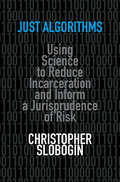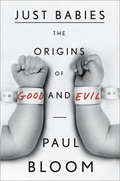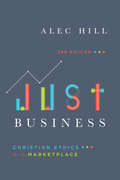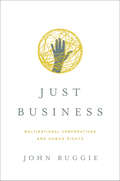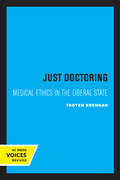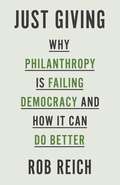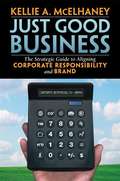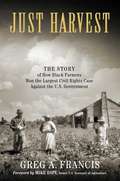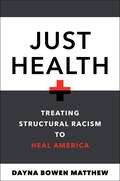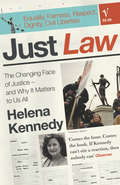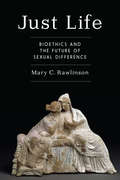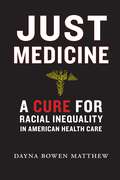- Table View
- List View
Juror #3
by James Patterson Nancy AllenA young attorney tries her first case . . . and it's Murder One in a legal thriller from the world's #1 bestselling writer. <P><P>Ruby Bozarth, a newcomer to Rosedale, Mississippi, is also fresh to the Mississippi Bar--and to the docket of Circuit Judge Baylor, who taps Ruby as defense counsel in a racially charged felony. <P><P> The murder of a woman from one of the town's oldest families has Rosedale's upper crust howling for blood, and the prosecutor is counting on Ruby's inexperience to help him deliver a swift conviction. Ruby's client is a college football star who has returned home after a career-ending injury, and she is determined to build a defense that will stick. She finds help in unexpected quarters from Suzanne, a hard-charging attorney armed to the teeth, and Shorty, a diner cook who knows more than he lets on. <P><P> Ruby never belonged to the country-club set, but once she nearly married into it. As news breaks of a second murder, Ruby's ex-fiancé, Lee Greene, shows up on her doorstep--a Southern gentleman in need of a savior. As lurid, intertwining investigations unfold, no one in Rosedale can be trusted, especially the twelve men and women impaneled on the jury. They may be hiding the most incendiary secret of all. <P><b>A New York Times Bestseller</b>
Jury and the Defense of Insanity
by Rita J. SimonThirty years after it was first published, the issues raised in The Jury and the Defense of Insanity remain pertinent. Rita James Simon examines how motivated and competent juries are, how well jurors understand and follow judges' instructions, their understand-ing of expert testimony, and the extent to which their own backgrounds and experiences influence their decisions. Simon provides a rare opportunity to observe how jurors go about the process of deliberating and reaching a verdict by following them into the jury room and recording their deliberations. This pathbreaking study of jury room behavior provides compelling evidence of the effectiveness of our trial by jury system.The Jury and the Defense of Insanity was the product of an experimental study con-ducted as part of the University of Chicago Jury Project. Over 1,000 jurors were chosen to participate, not as volunteers, but as part of their regular jury duty, in two experimental trials, one on a charge of housebreaking, the other of incest. In each the insanity de-fense was raised. Court judges instructed the jurors to consider the recorded trials they were about to hear with all the care and seriousness they would give to a real criminal prosecution, and the taped recordings of their deliberations make it clear that they did just that. These recordings, along with responses to detailed questionnaires, yielded significant data, equally applicable to civil as to criminal cases. We learn their reactions to their fellow jurors; personal evaluations of the quality and effectiveness of delibera-tions; the degree to which religion, sex, social status, education, and like factors affect participation in and influence on the course of the deliberation; and the recounting of and reliance upon personal experience in seeking to reach a verdict, among other in-sights furnished by this study.This is an exact record not a description or recollected account of the struggle of a jury to weigh evidence and achieve a just verdict. For lawyers whose job it is to win civil and criminal cases, for behavioral scientists who study male and female reactions in their cultural environment to the circumstances that confront them, and to all who are interested in how people behave and why, in a dramatic, socially significant situation, this is a fascinating and revealing book.
Jus Cogens
by Thomas WeatherallOne of the most complex doctrines in contemporary international law, jus cogens is the immediate product of the socialization of the international community following the Second World War. However, the doctrine resonates in a centuries-old legal tradition which constrains the dynamics of voluntarism that characterize conventional international law. To reconcile this modern iteration of individual-oriented public order norms with the traditionally State-based form of international law, Thomas Weatherall applies the idea of a social contract to structure the analysis of jus cogens into four areas: authority, sources, content and enforcement. The legal and political implications of this analysis give form to jus cogens as the product of interrelation across an individual-oriented normative framework, a State-based legal order, and values common to the international community as a whole.
Jus Post Bellum and Transitional Justice
by Larry May Elizabeth EdenbergThis collection of essays brings together jus post bellum and transitional justice theorists to explore the legal and moral questions that arise at the end of war and in the transition to less oppressive regimes. Transitional justice and jus post bellum share in common many concepts that will be explored in this volume. In both transitional justice and jus post bellum, retribution is crucial. In some contexts criminal trials will need to be held, and in others truth commissions and other hybrid trials will be considered more appropriate means for securing some form of retribution. But there is a difference between how jus post bellum is conceptualized, where the key is securing peace, and transitional justice, where the key is often greater democratization. This collection of essays highlights both the overlap and the differences between these emerging bodies of scholarship and incipient law.
Just Algorithms: Using Science to Reduce Incarceration and Inform a Jurisprudence of Risk
by Christopher SloboginStatistically-derived algorithms, adopted by many jurisdictions in an effort to identify the risk of reoffending posed by criminal defendants, have been lambasted as racist, de-humanizing, and antithetical to the foundational tenets of criminal justice. Just Algorithms argues that these attacks are misguided and that, properly regulated, risk assessment tools can be a crucial means of safely and humanely dismantling our massive jail and prison complex. The book explains how risk algorithms work, the types of legal questions they should answer, and the criteria for judging whether they do so in a way that minimizes bias and respects human dignity. It also shows how risk assessment instruments can provide leverage for curtailing draconian prison sentences and the plea-bargaining system that produces them. The ultimate goal of Christopher Slobogin's insightful analysis is to develop the principles that should govern, in both the pretrial and sentencing settings, the criminal justice system's consideration of risk.
Just American Wars: Ethical Dilemmas in U.S. Military History (War, Conflict and Ethics)
by Eric PattersonThis book examines the moral choices faced by U.S. political and military leaders in deciding when and how to employ force, from the American Revolution to the present day. Specifically, the book looks at discrete ethical dilemmas in various American conflicts from a just war perspective. For example, was the casus belli of the American Revolution just, and more specifically, was the Continental Congress a "legitimate" political authority? Was it just for Truman to drop the atomic bomb on Japan? How much of a role did the egos of Kennedy, Johnson and Nixon play in prolonging the Vietnam War? Often there are trade-offs that civilian and military leaders must take into account, such as General Scott’s 1847 decision to bombard the city of Veracruz in order to quickly move his troops off the malarial Mexican coast. The book also considers the moral significance and policy practicalities of different motives and courses of action. The case studies provided highlight the nuances and even limits of just war principles, such as just cause, right intention, legitimate authority, last resort, likelihood of success, discrimination, and proportionality, and principles for ending war such as order, justice, and conciliation. This book will be of interest for students of just war theory, ethics, philosophy, American history and military history more generally.
Just Babies: The Origins of Good and Evil
by Paul Bloom<P>A leading cognitive scientist argues that a deep sense of good and evil is bred in the bone. From John Locke to Sigmund Freud, philosophers and psychologists have long believed that we begin life as blank moral slates. Many of us take for granted that babies are born selfish and that it is the role of society--and especially parents--to transform them from little sociopaths into civilized beings. <P>In Just Babies, Paul Bloom argues that humans are in fact hardwired with a sense of morality. Drawing on groundbreaking research at Yale, Bloom demonstrates that, even before they can speak or walk, babies judge the goodness and badness of others' actions; feel empathy and compassion; act to soothe those in distress; and have a rudimentary sense of justice. <P>Still, this innate morality is limited, sometimes tragically. We are naturally hostile to strangers, prone to parochialism and bigotry. Bringing together insights from psychology, behavioral economics, evolutionary biology, and philosophy, Bloom explores how we have come to surpass these limitations. <P> Along the way, he examines the morality of chimpanzees, violent psychopaths, religious extremists, and Ivy League professors, and explores our often puzzling moral feelings about sex, politics, religion, and race. In his analysis of the morality of children and adults, Bloom rejects the fashionable view that our moral decisions are driven mainly by gut feelings and unconscious biases. <P>Just as reason has driven our great scientific discoveries, he argues, it is reason and deliberation that makes possible our moral discoveries, such as the wrongness of slavery. Ultimately, it is through our imagination, our compassion, and our uniquely human capacity for rational thought that we can transcend the primitive sense of morality we were born with, becoming more than just babies. <P>Paul Bloom has a gift for bringing abstract ideas to life, moving seamlessly from Darwin, Herodotus, and Adam Smith to The Princess Bride, Hannibal Lecter, and Louis C.K. Vivid, witty, and intellectually probing, Just Babies offers a radical new perspective on our moral lives. <P><b>A New York Times Bestseller</b>
Just Business: Christian Ethics for the Marketplace
by Alexander Hill"An ethical man is a Christian holding four aces." So said Mark Twain. But practicing Christians, at least, want to be ethical in all areas of life and work--not just when they are holding four aces. To those faced with the many questions and quandaries of doing business with integrity, Alexander Hill offers a place to begin. Alexander Hill carefully explores the foundational Christian concepts of holiness, justice and love. These keys to God's character, he argues, are also the keys to Christian business ethics. Hill then shows how some common responses to business ethics fall short of a fully Christian response. Finally, he turns to penetrating case studies on such pressing topics as employer-employee relations, discrimination and affirmative action, and environmental damage. This is an excellent introduction to business ethics for students and a bracing refresher for men and women already in the marketplace.
Just Business: Multinational Corporations and Human Rights (Norton Global Ethics Series)
by John Gerard Ruggie"A true master class in the art of making the impossible possible." --Paul Polman One of the most vexing human rights issues of our time has been how to protect the rights of individuals and communities worldwide in an age of globalization and multinational business. Indeed, from Indonesian sweatshops to oil-based violence in Nigeria, the challenges of regulating harmful corporate practices in some of the world's most difficult regions long seemed insurmountable. Human rights groups and businesses were locked in a stalemate, unable to find common ground. In 2005, the United Nations appointed John Gerard Ruggie to the modest task of clarifying the main issues. Six years later, he had accomplished much more than that. Ruggie had developed his now-famous "Guiding Principles on Business and Human Rights," which provided a road map for ensuring responsible global corporate practices. The principles were unanimously endorsed by the UN and embraced and implemented by other international bodies, businesses, governments, workers' organizations, and human rights groups, keying a revolution in corporate social responsibility. Just Business tells the powerful story of how these landmark "Ruggie Rules" came to exist. Ruggie demonstrates how, to solve a seemingly unsolvable problem, he had to abandon many widespread and long-held understandings about the relationships between businesses, governments, rights, and law, and develop fresh ways of viewing the issues. He also takes us through the journey of assembling the right type of team, of witnessing the severity of the problem firsthand, and of pressing through the many obstacles such a daunting endeavor faced. Just Business is an illuminating inside look at one of the most important human rights developments of recent times. It is also an invaluable book for anyone wanting to learn how to navigate the tricky processes of global problem-solving and consensus-building and how to tackle big issues with ambition, pragmatism, perseverance, and creativity.
Just Culture and the Criminalisation of Air Accidents
by Simon DanielsJust Culture and the Criminalisation of Air Accidents equips the reader with the tools to understand the meaning of criminalisation in the civil aviation industry. It enables them to resolve problems that arise in risk management within the context of their professional employment.By examining the priorities of pilots, air traffic controllers and prosecutors, this book analyses the anatomy of criminalisation in civil aviation and works towards constructing solutions that protect the professionals’ human rights and the Just Culture concept within the framework of criminal law and practice. It covers the duty of an air traffic controller to take the standard of care to guard against acts or omissions which might cause loss and give rise to a claim in negligence. The book illustrates the critical features discussed with numerous case studies from States and jurisdictions around the world.The book will benefit airline operators, pilots, air traffic controllers or managers, and aviation business managers.
Just Doctoring: Medical Ethics in the Liberal State
by Troyen A. BrennanThis title is part of UC Press's Voices Revived program, which commemorates University of California Press’s mission to seek out and cultivate the brightest minds and give them voice, reach, and impact. Drawing on a backlist dating to 1893, Voices Revived makes high-quality, peer-reviewed scholarship accessible once again using print-on-demand technology. This title was originally published in 1991.
Just Energy Transitions and Coal Bed Methane: The case of Indonesia (Energy, Climate and the Environment)
by Theresia Betty SumarnoThis book discusses how Coal Bed Methane (CBM) could help the acceleration of the energy transition in a ‘just’ way in Indonesia, due to the country's potential CBM reserves (and current dependence on climate damaging coal). Developing countries face multiple challenges in achieving their energy transitions. CBM in Indonesia could potentially be a catalyst for energy transition and subsequently improve access to energy. However, CBM faces numerous challenges and although Indonesia first developed its domestic CBM sector over more than a decade ago, they are still to implement this successfully. This book exposes the challenges and opportunities of CBM, exploring what lessons other countries could learn from Indonesia to improve the industry with a view to achieving energy transition and climate change targets. This book will be an invaluable reference for researchers and practitioners working in this field.
Just Fodder: The Ethics of Feeding Animals
by Josh MilburnAnimal lovers who feed meat to other animals are faced with a paradox: perhaps fewer animals would be harmed if they stopped feeding the ones they love. Animal diets do not raise problems merely for individuals. To address environmental crises, health threats, and harm to animals, we must change our food systems and practices. And in these systems, animals, too, are eaters.Moving beyond what humans should eat and whether to count animals as food, Just Fodder answers ethical and political questions arising from thinking about animals as eaters. Josh Milburn begins with practical dilemmas about feeding the animals closest to us, our pets or animal companions. The questions grow more complicated as he considers relationships with more distance – questions about whether and how to feed garden birds, farmland animals who would eat our crops, and wild animals. Milburn evaluates the nature and circumstances of our relationships with animals to generate a novel theory of animal rights.Looking past arguments about what we can and cannot do to other beings, Just Fodder asks what we can, should, and must do for them, laying out a fuller range of our ethical obligations to other animals.
Just Giving: Why Philanthropy Is Failing Democracy and How It Can Do Better
by Rob ReichThe troubling ethics and politics of philanthropyIs philanthropy, by its very nature, a threat to today’s democracy? Though we may laud wealthy individuals who give away their money for society’s benefit, Just Giving shows how such generosity not only isn’t the unassailable good we think it to be but might also undermine democratic values and set back aspirations of justice. Big philanthropy is often an exercise of power, the conversion of private assets into public influence. And it is a form of power that is largely unaccountable, often perpetual, and lavishly tax-advantaged. The affluent—and their foundations—reap vast benefits even as they influence policy without accountability. And small philanthropy, or ordinary charitable giving, can be problematic as well. Charity, it turns out, does surprisingly little to provide for those in need and sometimes worsens inequality.These outcomes are shaped by the policies that define and structure philanthropy. When, how much, and to whom people give is influenced by laws governing everything from the creation of foundations and nonprofits to generous tax exemptions for donations of money and property. Rob Reich asks: What attitude and what policies should democracies have concerning individuals who give money away for public purposes? Philanthropy currently fails democracy in many ways, but Reich argues that it can be redeemed. Differentiating between individual philanthropy and private foundations, the aims of mass giving should be the decentralization of power in the production of public goods, such as the arts, education, and science. For foundations, the goal should be what Reich terms “discovery,” or long-time-horizon innovations that enhance democratic experimentalism. Philanthropy, when properly structured, can play a crucial role in supporting a strong liberal democracy.Just Giving investigates the ethical and political dimensions of philanthropy and considers how giving might better support democratic values and promote justice.
Just Good Business: The Strategic Guide to Aligning Corporate Responsibility and Brand
by Kellie McelhaneyEvery major company has a corporate strategy based on business objectives and competencies of the firm. Most major companies claim to have a corporate social responsibility strategy, most of which are not linked to business objectives of the firm.
Just Harvest: The Story of How Black Farmers Won the Largest Civil Rights Case against the U.S. Government
by Greg FrancisWhen a class-action lawsuit against the US government results in a billion dollar settlement for the aggrieved parties, you&’d expect the story to be headline news . . .to be posted on social media everywhere . . . to be adapted to film or even to a popular legal procedural series on TV . . .So why then have so many people never heard of Pigford vs. Glickman? Or the follow-up lawsuit, Pigford II? Or the Black Farmers Case, as the pair of these legal actions is often called? Could it be that the heart-wrenching story of Black farmers in America, and the monumental legal case that brought long-sought justice to them, is rarely told because it reflects so poorly on the US and its treatment of those whose ancestors helped make the nation an agricultural giant in the first place? Whatever the reason, the time to tell the full story has come and the person to share the gripping details is Greg Francis, one of the lead counsels in the historic case that finally helped Black farmers achieve equity. In Just Harvest, Francis narrates the dramatic twists and turns of the legal battle fought and won, and evidences the many years of ingrained discrimination and racism that preceded it. Awareness of this story makes us all witnesses to the history still unfolding— and while parts of what is recounted herein will enrage you, the hope is that this book will also inspire, inform, and motivate you to join the continuing fight for the rights of all Black farmers now and in the future.
Just Health: Treating Structural Racism to Heal America
by Dayna Bowen MatthewChoice Outstanding Academic Title 2023The author of the bestselling Just Medicine reveals how racial inequality undermines public health and how we can change itWith the rise of the Movement for Black Lives and the feverish calls for Medicare for All, the public spotlight on racial inequality and access to healthcare has never been brighter. The rise of COVID-19 and its disproportionate effects on people of color has especially made clear how the color of one’s skin is directly related to the quality of care (or lack thereof) a person receives, and the disastrous health outcomes Americans suffer as a result of racism and an unjust healthcare system.Timely and accessible, Just Health examines how deep structural racism embedded in the fabric of American society leads to worse health outcomes and lower life expectancy for people of color. By presenting evidence of discrimination in housing, education, employment, and the criminal justice system, Dayna Bowen Matthew shows how racial inequality pervades American society and the multitude of ways that this undermines the health of minority populations. The author provides a clear path forward for overcoming these massive barriers to health and ensuring that everyone has an equal opportunity to be healthy. She encourages health providers to take a leading role in the fight to dismantle the structural inequities their patients face. A compelling and essential read, Just Health helps us to understand how racial inequality damages the health of our minority communities and explains what we can do to fight back.
Just Housing: The Moral Foundations of American Housing Policy (Urban and Industrial Environments)
by Casey J. DawkinsA new conception of housing justice grounded in moral principles that appeal to the home&’s special connection to American life.In response to the twin crises of homelessness and housing insecurity, an emerging &“housing justice&” coalition argues that America&’s apparent inability to provide decent housing for all is a moral failing. Yet if housing is a right, as housing justice advocates contend, what is the content of that right? In a wide-ranging examination of these issues, Casey Dawkins chronicles the concept of housing justice, investigates the moral foundations of the US housing reform tradition, and proposes a new conception of housing justice that is grounded in moral principles that appeal to the home&’s special connection to American life. Dawkins examines the conceptual foundations of justice and explores the social meaning of the American home. He chronicles the evolution of American housing reform, showing how housing policy was pieced together from layers of housing and land-use policies enacted over time, and investigates the endurance—from the founding of the republic through the postwar era—of the owned single-family home as the embodiment of national values. Finally, Dawkins considers housing justice, drawing on elements of liberalism, republicanism, progressivism, and pragmatism to defend a right-based conception of housing justice grounded in the ideal of civil equality. Arguing that any defense of private property must appeal to the interests of those whose tenure is made insecure by the institution of private property, he proposes a &“secure tenure&” property regime and a &“negative housing tax&” that would fund a guaranteed housing allowance.
Just Jones: Sometimes a Thing Is Impossible . . . Until It Is Actually Done (A Noticer Book)
by Andy AndrewsFrom New York Times bestselling author Andy Andrews comes the return of one of our favorite fictional characters: Jones, the noticer. A mysterious elderly man with white hair and endless wisdom who always appears to show up exactly when he&’s needed most.At 3:29 a.m. on May 22, a telephone rings in Orange Beach, Alabama. Breaking the sleepy silence inside the bedroom of New York Times bestselling author Andy Andrews, a hastily whispered message heralds the news that Andy has been waiting on for seven years: Jones is back in town. Apparently, however, he is also in jail. The old man is tight-lipped about the circumstances surrounding his brief incarceration. After arriving to bail him out, Andy is shocked to discover that his trusted friend has already opened an unusual business in one of the resort town&’s most high-profile shopping districts. Jones&’s Five & Dime seems to always have exactly what visitors are looking for, even as their fate steadily becomes entwined with Jones&’s. As the town moves from spring to summer, a practical joker is becoming bolder and more inventive with every prank that is pulled. Could Jones be behind some of it? Why? And what will happen if he is? What&’s the truth about that four-hundred-pound table in his Five & Dime? What compels certain people to gather around it every morning? And why does it look as if every person Jones meets has a secret they will reveal only to him? With rare insight, Andy and Jones take us on a journey that proves the importance of perspective, the power of connection, and the ability we all have to make the impossible come true.
Just Law
by Helena KennedyAcute, questioning, humane and passionately concerned for justice, Helena Kennedy is one of the most powerful voices in legal circles in Britain today. Here she roundly challenges the record of modern governments over the fundamental values of equality, fairness and respect for human dignity. She argues that in the last twenty years we have seen a steady erosion of civil liberties, culminating today in extraordinary legislation, which undermines long established freedoms. Are these moves a crude political response to demands for law and order? Or is the relationship between citizens and the state being covertly reframed and redefined?
Just Leisure: Things That We Believe In
by Daniel L. Dustin Keri SchwabThis book is intended to deepen your understanding of social and environmental justice in the context of leisure. It will spur your curiosity and bring you to your learning edge -- the place where you come when you are a little anxious and uncomfortable and where you can either pull back into your comfort zone and stay with the familiar or lean into your discomfort, suspend your disbelief, and open yourself to the possibility of learning something new. This book features 19 thought-provoking chapters with discussion questions and syntheses contributed by authors from the United States, Canada, and Australia. Whether you come to this work through your concern for the environment or through your desire for greater social equity among people, you come to justice work because you recognise the need for it and believe you can make a difference.
Just Life: Bioethics and the Future of Sexual Difference
by Mary C. RawlinsonJust Life reorients ethics and politics around the generativity of mothers and daughters rather than the right to property and the sexual proprieties of the oedipal drama. Invoking two concrete universals—everyone is born of a woman and everyone needs to eat—Rawlinson rethinks labor and food as relationships that make ethical claims and sustain agency. Just Life counters the capitalization of bodies under biopower with the solidarity of sovereign bodies.
Just Married
by Stephen MacedoThe institution of marriage stands at a critical juncture. As gay marriage equality gains acceptance in law and public opinion, questions abound regarding marriage's future. Will same-sex marriage lead to more radical marriage reform? Should it? Antonin Scalia and many others on the right warn of a slippery slope from same-sex marriage toward polygamy, adult incest, and the dissolution of marriage as we know it. Equally, many academics, activists, and intellectuals on the left contend that there is no place for monogamous marriage as a special status defined by law. Just Married demonstrates that both sides are wrong: the same principles of democratic justice that demand marriage equality for same-sex couples also lend support to monogamous marriage.Stephen Macedo displays the groundlessness of arguments against same-sex marriage and defends marriage as a public institution against those who would eliminate its special status or supplant it with private arrangements. Arguing that monogamy reflects and cultivates our most basic democratic values, Macedo opposes the legal recognition of polygamy, but agrees with progressives that public policies should do more to support nontraditional caring and caregiving relationships. Throughout, Macedo explores the meaning of contemporary marriage and the reasons for its fragility and its enduring significance. His defense of reformed marriage against slippery slope alarmists on the right, and radical critics of marriage on the left, vindicates the justice and common sense of the emerging consensus. Casting new light on today's debates over the future of marriage, Just Married lays the groundwork for a stronger institution.
Just Medicine: A Cure for Racial Inequality in American Health Care
by Dayna Bowen MatthewOffers an innovative plan to eliminate inequalities in American health care and save the lives they endanger Over 84,000 black and brown lives are needlessly lost each year due to health disparities: the unfair, unjust, and avoidable differences between the quality and quantity of health care provided to Americans who are members of racial and ethnic minorities and care provided to whites. Health disparities have remained stubbornly entrenched in the American health care system—and in Just Medicine Dayna Bowen Matthew finds that they principally arise from unconscious racial and ethnic biases held by physicians, institutional providers, and their patients.Implicit bias is the single most important determinant of health and health care disparities. Because we have missed this fact, the money we spend on training providers to become culturally competent, expanding wellness education programs and community health centers, and even expanding access to health insurance will have only a modest effect on reducing health disparities. We will continue to utterly fail in the effort to eradicate health disparities unless we enact strong, evidence-based legal remedies that accurately address implicit and unintentional forms of discrimination, to replace the weak, tepid, and largely irrelevant legal remedies currently available.Our continued failure to fashion an effective response that purges the effects of implicit bias from American health care, Matthew argues, is unjust and morally untenable. In this book, she unites medical, neuroscience, psychology, and sociology research on implicit bias and health disparities with her own expertise in civil rights and constitutional law. In a time when the health of the entire nation is at risk, it is essential to confront the issues keeping the health care system from providing equal treatment to all.



